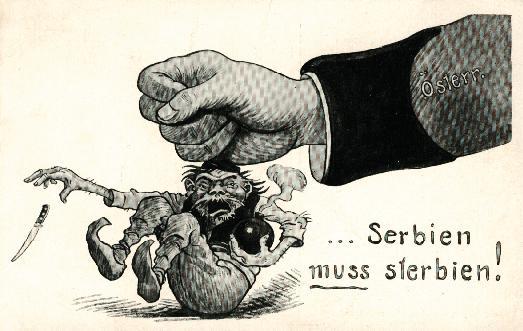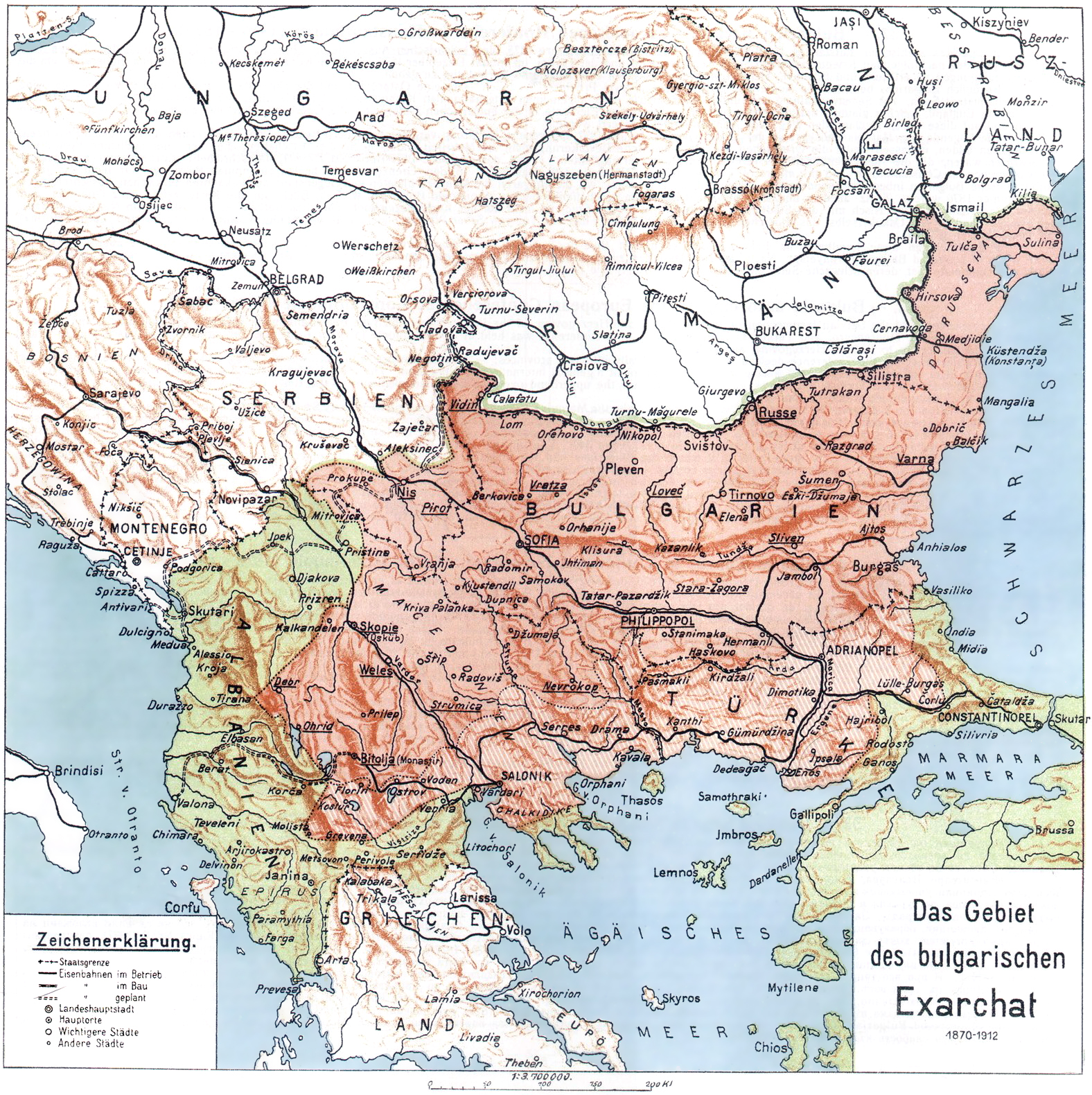|
Serbomans
Serbomans (Serbo-Croatian and mk, србомани, srbomani; bg, сърбомани, sarbomani; ro, sârbomani) is a Bulgarian pejorative term used by Bulgarian nationalists for inhabitants in the region of Macedonia that claimed Serbian ethnicity (declared as Serbs) and supported Serbian national ideals until the middle of the 20th century. They explained it by imposed by the Serbian propaganda secondary identity with result that a Bulgarian population had lost its real nationality. It is also still used pejoratively by Bulgarians to refer to residents of North Macedonia who proclaimed a separate Macedonian identity and act to subdue Bulgarian nationalism in Macedonia. The term first appeared during the time of the Serbian-Bulgarian rivalry for present-day North Macedonia during the second half of the 19th century. [...More Info...] [...Related Items...] OR: [Wikipedia] [Google] [Baidu] |
Serbianization
Serbianisation American and British English spelling differences#-ise, -ize (-isation, -ization), or Serbianization, also known as Serbification, and Serbisation American and British English spelling differences#-ise, -ize (-isation, -ization), or Serbization ( sh-Latn-Cyrl, separator=" / ", srbizacija, србизација or sh-Latn-Cyrl, label=none, separator=" / ", posrbljavanje, посрбљавање; sq, serbizimi; bg, сърбизация, translit=sarbizatsiya or ; mk, србизација, translit=srbizacija; ro, serbificare) is the spread of Serbian culture, Serbs, people, and Serbian language, language, either by social integration or by Cultural assimilation, cultural or forced assimilation. Medieval period Populated by Bulgarians and Romanians, the area between the Great Morava, Morava and Timok River, Timok rivers became part of the Serbian state in 1291/1292 which began the Serbianisation of the region. "An important Romanian concentration existed in the regi ... [...More Info...] [...Related Items...] OR: [Wikipedia] [Google] [Baidu] |
Anti-Serbian Sentiment
Anti-Serb sentiment or Serbophobia ( sr-Cyrl-Latn, србофобија, srbofobija, separator=" / ") is a generally negative view of Serbs as an ethnic group. Historically it has been a basis for the persecution of ethnic Serbs. A distinctive form of anti-Serb sentiment is anti-Serbian sentiment, which can be defined as a generally negative view of Serbia as a nation-state for Serbs. Another form of anti-Serb sentiment is a generally-negative view of Republika Srpska, the Serb-majority entity in Bosnia and Herzegovina. The best known historical proponent of anti-Serb sentiment was the 19th- and 20th-century Croatian Party of Rights. The most extreme elements of this party became the Ustasha in the Kingdom of Yugoslavia, a Croatian fascist organization that came to power during World War II and instituted racial laws that specifically targeted Serbs, Jews, Roma and dissidents. This culminated in the genocide of Serbs and members of other minority groups that lived in the Ind ... [...More Info...] [...Related Items...] OR: [Wikipedia] [Google] [Baidu] |
Bulgarophiles
Bulgarophiles ( bg, българофили; Serbian and Macedonian бугарофили or бугараши ; ; ro, Bulgarofilii) is a term used for Slavic people from the regions of Macedonia and Pomoravlje who are ethnic Bulgarians. In Bulgaria, the term Bulgaromans; ( bg, българомани; ro, Bulgaromani) refers to non-Slavic people such as Aromanians with a Bulgarian self-awareness. In the 20th century, Bulgarophiles in neighboring Yugoslavia and Greece were considered enemies of the state harboring irredentist tendencies.Цочо Билярски, Гръцките жестокости и варваризъм над българите (1912 - 1923г.) Анико, София, . 2012. See also * Serbomans * Grecomans * Macedonian Bulgarians Macedonians or Macedonian Bulgarians ( bg, македонци or македонски българи), sometimes also referred to as Macedono-Bulgarians, Macedo-Bulgarians, or Bulgaro-Macedonians are a regional, ethnog ... [...More Info...] [...Related Items...] OR: [Wikipedia] [Google] [Baidu] |
Serbo-Croatian
Serbo-Croatian () – also called Serbo-Croat (), Serbo-Croat-Bosnian (SCB), Bosnian-Croatian-Serbian (BCS), and Bosnian-Croatian-Montenegrin-Serbian (BCMS) – is a South Slavic language and the primary language of Serbia, Croatia, Bosnia and Herzegovina, and Montenegro. It is a pluricentric language with four mutually intelligible standard varieties, namely Serbian, Croatian, Bosnian, and Montenegrin. South Slavic languages historically formed a continuum. The turbulent history of the area, particularly due to expansion of the Ottoman Empire, resulted in a patchwork of dialectal and religious differences. Due to population migrations, Shtokavian became the most widespread dialect in the western Balkans, intruding westwards into the area previously occupied by Chakavian and Kajkavian (which further blend into Slovenian in the northwest). Bosniaks, Croats and Serbs differ in religion and were historically often part of different cultural circles, although a large part o ... [...More Info...] [...Related Items...] OR: [Wikipedia] [Google] [Baidu] |
Grecoman
Grecoman or Graecoman (Greek: Γραικομάνοι, ''Grekománoi'', Bulgarian: Гъркомани, ''Garkomani'', Macedonian: Гркомани, ''Grkomani'', Romanian: ''Grecomani'', Albanian: ''Grekomanë'', Aromanian: ''Gricumanji'') is a pejorative term used in Bulgaria, North Macedonia, Romania, Albania, and Italy to characterize Albanian–, Aromanian–, Italian-, and Slavic–speaking people, who self-identify as ethnic Greeks. The term generally means "pretending to be a Greek" and implies a non-Greek origin. Another meaning of the term is ''fanatic Greek''. The term is considered highly offensive to the Greek people.. The "Grecomans" are regarded as ethnic Greeks in Greece, but as members of originally non-Greek, but subsequently Hellenized Hellenization (other British spelling Hellenisation) or Hellenism is the adoption of Greek culture, religion, language and identity by non-Greeks. In the ancient period, colonization often led to the Hellenization of indigenou ... [...More Info...] [...Related Items...] OR: [Wikipedia] [Google] [Baidu] |
Bulgaria–Serbia Relations
Bulgaria has an embassy in Belgrade. Serbia has an embassy in Sofia. Bulgaria is a European Union member state and Serbia is a European Union candidate. Both countries are full members of the Southeast European Cooperation Process, of the Stability Pact for South Eastern Europe, of the Central European Initiative, of the Southeast European Cooperative Initiative and of the Organization of the Black Sea Economic Cooperation. The countries share 318 km of common borderline. Bulgaria recognized Kosovo as an independent self-proclaimed country in 2008, which strained relations between two nations, however the two countries enjoy good cooperation in the area of culture, as seen in the examples of co-production of Serbian movies. History In 1867, a Bulgarian society, active in Bucharest approached the Serbian state with a draft-agreement. The Bulgarian side proposed the founding of a common Serbo-Bulgarian (Bulgaro-Serbian) dual state called ''South Slav Tsardom'', headed by ... [...More Info...] [...Related Items...] OR: [Wikipedia] [Google] [Baidu] |
Pejorative Terms For European People
A pejorative or slur is a word or grammatical form expressing a negative or a disrespectful connotation, a low opinion, or a lack of respect toward someone or something. It is also used to express criticism, hostility, or disregard. Sometimes, a term is regarded as pejorative in some social or ethnic groups but not in others, or may be originally pejorative but later adopt a non-pejorative sense (or vice versa) in some or all contexts. Etymology The word ''pejorative'' is derived from a Late Latin past participle stem of ''peiorare'', meaning "to make worse", from ''peior'' "worse". Pejoration and melioration In historical linguistics, the process of an inoffensive word becoming pejorative is a form of semantic drift known as pejoration. An example of pejoration is the shift in meaning of the word ''silly'' from meaning that a person was happy and fortunate to meaning that they are foolish and unsophisticated. The process of pejoration can repeat itself around a single concept, ... [...More Info...] [...Related Items...] OR: [Wikipedia] [Google] [Baidu] |
Serbs Of North Macedonia
The Serbs are one of the constitutional peoples of North Macedonia ( mk, Србите во Северна Македонија, sr-Cyrl-Latn, Срби у Северној Македонији, Srbi u Severnoj Makedoniji), numbering about 24,000 inhabitants (2021 census). Historical overview Serbia became for the first time independent under Časlav ca. 930, only to fall ca. 960 under Byzantine, later under Bulgarian and then again under Byzantine rule. From the end of the 11th to the end of the 13th century, the Serbian rulers made several attempts to penetrate into the region and briefly conquered its northernmost territories. In fact the whole of today North Macedonia was taken for the first time by medieval Serbia, during the 1280s. The territory of today's North Macedonia was part of the Serbian Kingdom and Empire to the Battle of Kosovo (1389) when it was conquered by the Ottomans. The South Slavic Orthodox people now lived under a foreign, Muslim power, in whose eyes all ... [...More Info...] [...Related Items...] OR: [Wikipedia] [Google] [Baidu] |
Bulgarian Nationalism
Bulgarian irredentism is a term to identify the territory associated with a historical national state and a modern Bulgarian irredentist nationalist movement in the 19th and 20th centuries, which would include most of Macedonia, Thrace and Moesia. History The larger proposed Bulgarian state was suggested under the Treaty of San Stefano in 1878. The issue of irredentism and nationalism gained greater prominence after the Treaty of San Stefano. It established a Principality of Bulgaria, with territory including most of Moesia - the plain between the Danube and the Balkan mountains range (Stara Planina), the regions of Sofia, Pirot, and Vranje in the Morava Valley, Thrace - Northern Thrace, parts of Eastern Thrace, and nearly all of Macedonia. This treaty laid grounds for much of the later claims for a Greater Bulgaria. However, the Treaty of San Stefano was a preliminary one, and the borders of the newly created Bulgaria were established in the Treaty of Berlin. It saw t ... [...More Info...] [...Related Items...] OR: [Wikipedia] [Google] [Baidu] |
Serbophilia
Serbophilia ( sr, , , ''literally love for Serbia and Serbs'') is the admiration, appreciation or emulation of non-Serbian person who expresses a strong interest, positive predisposition or appreciation for the Serbian people, Serbia, Republika Srpska, Serbian language, culture or history. Its opposite is Serbophobia. History 20th century World War I During World War I, Serbophilia was present in western countries. Breakup of Yugoslavia Political scientist Sabrina P. Ramet writes that Serbophilia in France during the 1990s was "traditional", partly as a response to the closeness between Germany and Croatia. Business ties continued during the war and fostered a desire for economic normalization. Serbophiles * Jacob Grimm German philologist, jurist and mythologist. Learnt Serbian in order to read Serbian epic poetry. * Archibald Reiss German-Swiss publicist, chemist, forensic scientist, a professor at the University of Lausanne. * Victor Hugo French poet, novelist, ... [...More Info...] [...Related Items...] OR: [Wikipedia] [Google] [Baidu] |
Bulgarian Language
Bulgarian (, ; bg, label=none, български, bălgarski, ) is an Eastern South Slavic language spoken in Southeastern Europe, primarily in Bulgaria. It is the language of the Bulgarians. Along with the closely related Macedonian language (collectively forming the East South Slavic languages), it is a member of the Balkan sprachbund and South Slavic dialect continuum of the Indo-European language family. The two languages have several characteristics that set them apart from all other Slavic languages, including the elimination of case declension, the development of a suffixed definite article, and the lack of a verb infinitive. They retain and have further developed the Proto-Slavic verb system (albeit analytically). One such major development is the innovation of evidential verb forms to encode for the source of information: witnessed, inferred, or reported. It is the official language of Bulgaria, and since 2007 has been among the official languages of the Eur ... [...More Info...] [...Related Items...] OR: [Wikipedia] [Google] [Baidu] |
Macedonians (ethnic Group)
Macedonians ( mk, Македонци, Makedonci) are a nation and a South Slavs, South Slavic ethnic group native to the region of Macedonia (region), Macedonia in Southeast Europe. They speak Macedonian language, Macedonian, a South Slavic language. The large majority of Macedonians identify as Eastern Orthodox Christians, who speak a South Slavic language, and share a cultural and historical "Orthodox Byzantine–Slavic heritage" with their neighbours. About two-thirds of all ethnic Macedonians live in North Macedonia and there are also Macedonian diaspora, communities in a number of other countries. The concept of a Macedonian ethnicity, distinct from their Orthodox Balkan neighbours, is seen to be a comparatively newly emergent one. The earliest manifestations of an incipient Macedonian identity emerged during the second half of the 19th century among limited circles of Slavic-speaking intellectuals, predominantly outside the region of Macedonia. They arose after the Firs ... [...More Info...] [...Related Items...] OR: [Wikipedia] [Google] [Baidu] |






